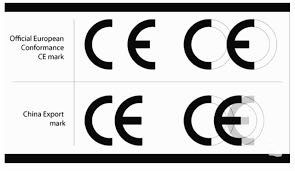Posted by Michael Gilligan on 06/04/2019 07:00:35:
For those with the stamina to participate in this debate
[a group from which I exclude myself]
…
I suddenly realised that this thread was just like being back at work where disentangling this sort of stuff was a painful necessity. Arguing about the meanings of legal documents can be interesting and I was in danger of being sucked in! Then I remembered, at work, I had a telephone, access to specialists and legal eagles, and a consultancy budget. Not at home I don't!
One thing I learned about the law is that a little knowledge is a dangerous thing. Decoding regulations isn't always straightforward without first understanding their structure, terminology and background. They are written by lawyers for lawyers, not blokes on the internet.
Dipping into fragments of law is quite dangerous unless you understand the scope as set internally by a particular Regulation and also by other applicable Acts, Regulations and Guidelines. There is also a hierarchy in law, for example a conviction can be overturned by the Supreme Court and also an expectation in UK Law that meanings will be tested in court. The resulting Case Law can and does alter the meaning of Regulations. Through casual reading, it's quite easy to convince yourself that illegal acts are OK, or that legal acts are forbidden.
Not least because they helped write it, the meaning of the Machinery Directive was clear to governments who converted into national legislation. The UK regulation is also clear to commercial organisations. It's meaning only becomes blurred in the context of private workshops, which it was never intended to cover. For legal reasons, Regulations rarely spell out all possible exceptions in comfortable black and white form. Sometimes Guidelines are issued to clarify the point, and there is one! Home workshops do not apply CE Marks!
But, CE Marking apart, we are all required to obey the law. Robert mentioned EMC, and I wish Model Engineers took this more seriously. However, the legal position is that interfering with a legally defined essential service will result in enforcement action. A chap innocently operating a power tool without a filter will probably just be told to fit one. More deliberate or negligent interference can be punished with confiscation, heavy fines, or even a prison sentence. The nature of home workshops is that they are unlikely to interfere with an essential service, hence few are prosecuted. Best practice is to fit filters please.
So there you go, 10000 words from me, agreeing with Michael that I don't want to get involved!

Dave
Edited By SillyOldDuffer on 06/04/2019 11:14:41
V8Eng.






